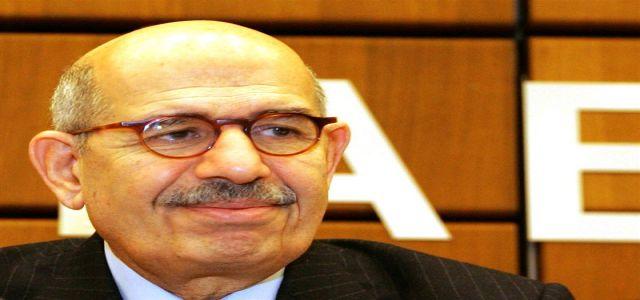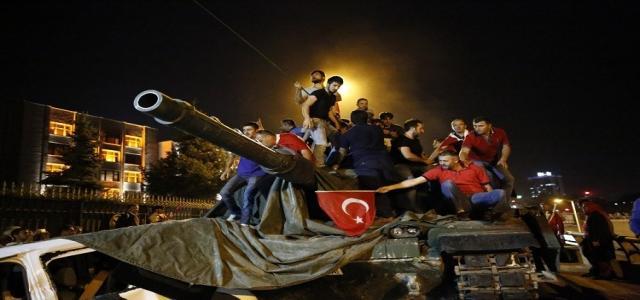- DemocracyOther Opinions
- May 5, 2010
- 9 minutes read
Return of the native

IT is after a long time that the entrenched Egyptian political establishment, presided over by President Hosni Mubarak, is facing a serious challenge to its pre-eminence. The return of Mohamed ElBaradei to his native country in February after a long and meritorious stint abroad seems to have galvanised the Egyptian masses. The Nobel Peace Prize winner and former head of the International Atomic Energy Agency (IAEA) returned home to a rapturous welcome. Although he has still not explicitly stated that he will run for President in the election scheduled for next year, he has undertaken a hectic travel schedule and addressed many public meetings across Egypt.
ElBaradei has said that he will offer his candidacy only if certain conditions, including guaranteed free elections and the right of independent candidates to run, are met by the government. Article 76 of the Egyptian Constitution, for all practical purposes, allows only candidates from the officially sanctioned parties to contest for the presidency. Candidates for President should get the support of 250 members of all the elected councils. They include Parliament, the Shoura Council and local People’s Councils spread throughout the country. All these organs are stacked with the supporters of the ruling party. It is also extremely difficult to register opposition parties. The Constitution states that a candidate for President has to be a member of a legally recognised political party.
Elections in Egypt have been notorious for officially sanctioned skulduggery. Hosni Mubarak, during his recent visit to Germany, said that he welcomed ElBaradei’s entry into politics but with the proviso that he should also abide by the provisions of the Constitution.
The Secretary General of the Arab League, Amr Mousa, has also criticised the constitutional obstacles placed before those wishing to run for the presidency. Mousa, a former Foreign Minister, is also a dark horse in the presidential race. He too is not a member of a political party: he left party politics after assuming the top post in the Arab League.
The general feeling among Egyptians is that Mubarak is grooming his second son, Gamal Mubarak, to succeed him. The 81-year-old President recently underwent surgery in a German hospital. There is also speculation that given the mounting challenge from ElBaradei, Mubarak may decide to run for an unprecedented fifth term.
Though ElBaradei is not a member of any of the officially registered parties, he is supported by many political groupings opposed to the Mubarak government. He has called on Egyptians to join the National Front for Change, which he established after his return home.
The government has so far successfully resisted all attempts at political reform. Mubarak’s National Democratic Party (NDP) has ruled with an iron hand for the past 30 years and has tolerated little dissent. There was a half-hearted attempt by the George W. Bush administration to “spread democracy” in West Asia. Washington has since reverted to type and is once again fully behind the pro-Western authoritarian regimes that dot the political landscape in the region. In fact, the Barack Obama administration recently cut funding for “promoting democracy” in Egypt.
The money was to be used for monitoring the forthcoming elections and encouraging anti-corruption measures. The Obama administration is keen to ensure the backing of the Egyptian government for its West Asia policy, which includes the inhuman blockade of Gaza. Egypt and Israel are the top recipients of American aid globally. The Egyptian economy has been propped up mainly by the infusion of massive American aid. The annual U.S. military aid to Egypt is around $1 billion.
The challenge
The Egyptian government has already started taking steps to undermine the challenge posed by ElBaradei. The pro-government media have wasted no time in reminding Egyptians that ElBaradei was out of the country for more than three decades and is therefore not in touch with the political ground realities. One newspaper accused him of “exploiting churches and mosques, which he has never bothered to visit in the last 30 years, to market himself among ordinary Egyptians”. Two members of Parliament belonging to the ruling party recently called on the police to use live bullets to stop citizens from staging protests demanding constitutional changes. After ElBaradei’s return, there has been a rise in public demonstrations against the government. Before that, the last serious protests were held in 2005 when the controversial parliamentary polls were held.
ElBaradei was a junior Minister in the Cabinet of the late President Anwar Sadat. He, along with some other senior officials, quit office after Sadat signed the Camp David agreement with Israel in 1979. The agreement splintered Arab unity after Egypt broke ranks and gave diplomatic recognition to Israel.
In his recent speeches, which he has been delivering by defying a government ban on public gatherings without state sanction, ElBaradei has been vociferous in his support of the Palestinian cause and critical of American support for Israel’s barbaric policies in Gaza and the occupied territories. He has described Western policy towards the region as a “total failure” as it was based on supporting authoritarian regimes to keep the oil flowing.
On his return to Cairo, he told an overflowing crowd that had come to greet him that it was time for Egyptians to “change from a people who are told what to do into a people who can present their political, social and economic demands in an appropriate manner”.
ElBaradei has been emphasising the need to modernise Egypt’s laws and Constitution so that there is genuine freedom of the press and minorities are allowed to run for top offices. The former United Nations Secretary-General Boutros Boutros-Ghali, also from Egypt, could never hold a full Cabinet rank in his country because of his Coptic Christian origins.
Muslim brotherhood
ElBaradei’s call for bringing in the Muslim Brotherhood (M.B.) from the cold has angered the Egyptian government. The Brotherhood is one of the oldest parties in the country but has not been allowed to contest elections openly.
Owing to a variety of factors, including the Bush administration’s attempts to spread democracy, the M.B. was allowed to put up “independent” candidates in the last elections. These candidates did spectacularly well; they won more than 100 seats. Independent observers said at the time that they would have got many more seats but for the widespread rigging that changed results dramatically overnight. The government has once again launched a crackdown on the M.B. in the run-up to the parliamentary elections scheduled to be held this year.
The M.B. in recent months has been bending over backwards to mend fences with other opposition parties. A leading Brotherhood MP, Mohammed El-Beltagui, told the newspaper Al Ahram that the party wanted a “historical reconciliation with the opposition” for the sake of promoting political and constitutional reforms.
The main secular opposition parties – al Wafd, al-Tagammu and al Araby-al-Nassery – have, however, been critical of ElBaradei’s plans to reintegrate the Muslim Brothers into the political mainstream and have so far spurned the olive branch. They have also been lukewarm in their support for ElBaradei’s presidential bid. They echo the ruling party’s line that ElBaradei is an outsider who has no chance of winning.
However, the Nasserist Party has agreed to cooperate with the Brotherhood. Both the parties agreed that “the nation lives in a state of danger” and that it was important “to rally behind a common agenda of constitutional and political reform rather than on focussing on narrowing the ideological gap”. An M.B. spokesman said that his party shared a common vision with the Nasserists. Both parties, he said, wanted an end to the state of emergency and the trial by military tribunals. Under emergency laws in existence since the assassination of Sadat in 1982, individuals can be jailed indefinitely.
The past couple of months have revealed a groundswell of grass-roots support for ElBaradei. Saad Eddin Ibrahim, a well-known opposition activist, writing in the independent newspaper AlMasry AlYoum, said that ElBaradei’s readiness to run for the top office if the Constitution was amended had “changed the Egyptian political scene qualitatively and psychologically in an unprecedented way since 1952”.
In 1952, young army officers led by Gamal Abdel Nasser overthrew the monarchy. After the death of Nasser, his successors gradually gave up the socialist and pan-Arab underpinnings of the 1952 revolution. Ibrahim, in his article, has argued that a “social movement” comprising politicised youth, intellectuals and middle-class citizens has mobilised around ElBaradei.
Some Egyptian commentators who are sympathetic to the opposition, however, are of the view that the government is engaged in a political charade in its attempt to give the impression that Egypt has an open democratic system. Mahmoud Saad, a popular television talk show host, wrote in the opposition newspaper al-Dostor that the ElBaradei campaign “is a big lie – played by the opposition and directed by the government for its own interest”.
But others are more optimistic. “The power of ElBaradei is in his ideas, which sell hope, a commodity that disappeared from the Egyptian market. Hope means to believe in ourselves and in our ability to bring change,” wrote another analyst, Mahmoud Khalil, in AlMasry AlYoum.



